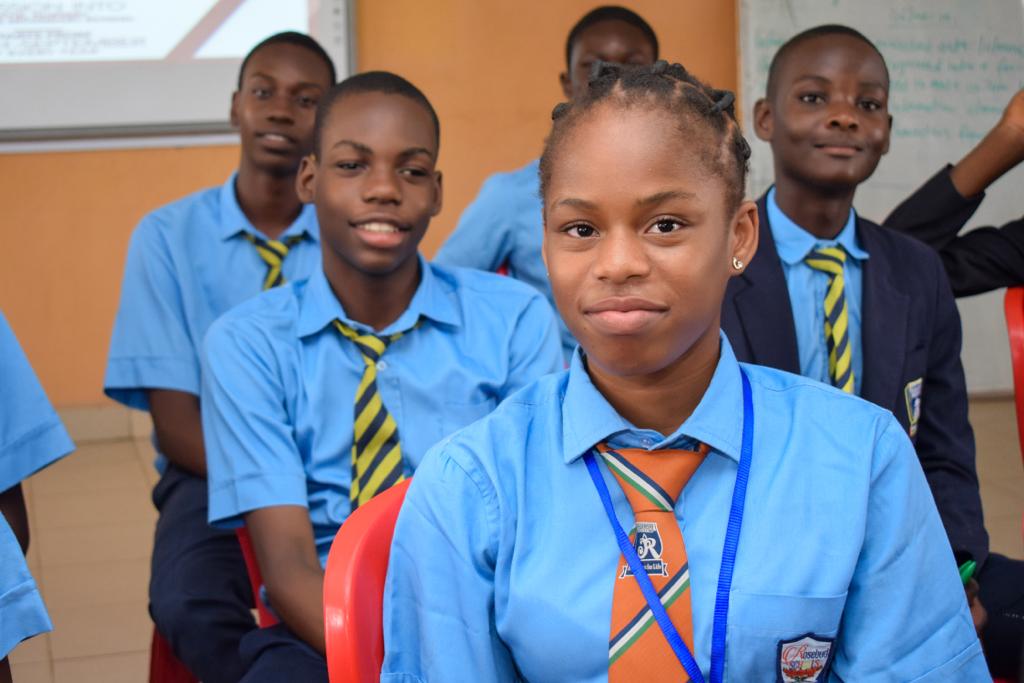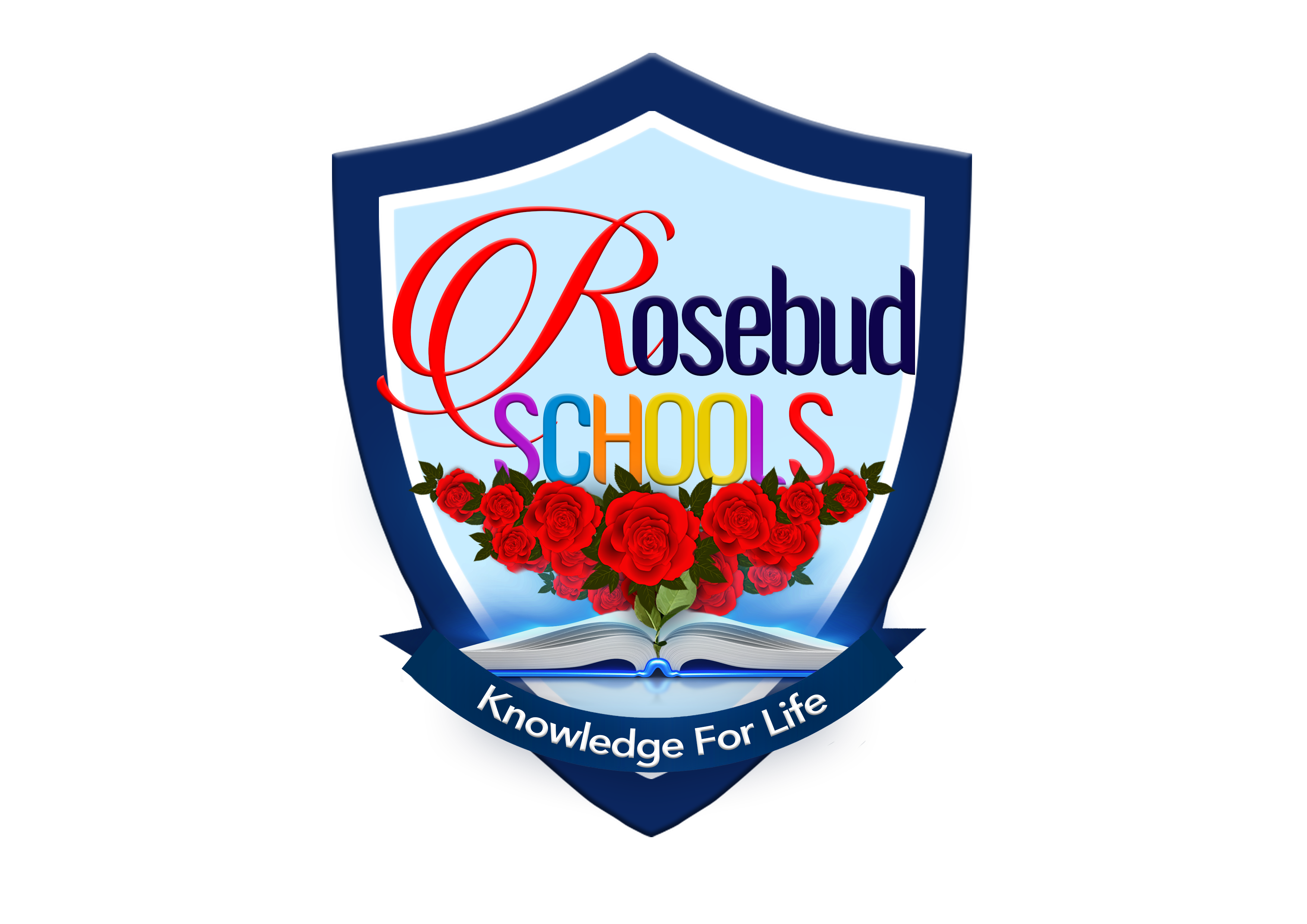At Rosebud School, we encourage our pupils/students (the roses) to develop an enquiring mind with Montessori Method to ensure that every pupil/student (the rose) right from the pre-nursery becomes confident and independent learner. This shows an overview of the ability of every child in all areas of child development such as cognitive, psychomotor and affective skills.

Here our students (the roses) strive for excellence, acquire ethical values and develop skills to help them achieve their future goals at home and abroad, and finally write the Cambridge IGCSE Exam, NECO and WAEC for both Junior and Senior Secondary Certificate Examinations.
The Secondary School is managed by the Principal assisted by the Vice Principals, Heads of Department, the Heads of School, the counsellors and Class teachers,
10 to 17 years (Secondary School)
In (Junior Secondary school) Years 7, 8 and 9 students are taught in mixed ability groups for most subjects. We use the information from the Year 7 Entrance Exam and our own internal assessments to make sure students are rightly placed.
During the first 3 years (Years 7, 8 and 9) all students learn through a common course of study that is differentiated to meet their needs and interests. The subjects include;
At the end of Year 9, students sit for JSS 3 NECO and WAEC Examinations.
In (Senior Secondary) Years 10 and 11, students are taught in different groups for all subjects, depending on their choice of subjects for Key Stage 4. The following are the subjects they offer;
We provide different routes for learning that builds on the students’ successes at Key Stage 3. At the end of Year 12, students sit for senior secondary school WAEC and NECO and Cambridge IGCSE Exams.
Students from year 11 – 12 can attempt IGCSE, (WAEC/NECO) GCE depending on their chosen subjects and extra opportunities presented to them.
In the Post 17 Years we offer the Cambridge A ‘level.
At this stage of our Learning Programme, Rosebud School has adopted a world-wide recognised experience that enables our graduates to excel in any part of the world with their leaving qualifications. It is accepted in all the good Universities and Colleges here in Nigeria and abroad. The school also have classes for; TOEFL, IELTS, SAT 1&2.
Junior Secondary Year 7 – 9
In the first year of the secondary school (our Y7) the scope of the curriculum widens to include a broader subject base.
The five years of secondary education culminate in the IGCSE examination. Pupils who have fulfilled the necessary requirements are presented by the school to sit for the International General Certificate of Secondary Education (IGCSE), run by the University of Cambridge Local Examination Syndicate (UCLES).
The first three years of secondary serve to introduce the pupils to more advanced study skills in preparation for the Checkpoint Examination which takes place in Y9. The Checkpoint Examination, taken in the core subjects of English, Mathematics and Science, serves to give a better understanding of the pupils’ strengths and weaknesses in preparation for subject choices in Y10, when the IGCSE programme begins in earnest.
Senior Secondary Year 10 – 12
The final 3 years are the examination years. The students are encouraged to use the study skills learnt through elementary school and Junior Secondary Years 7 to 9 and take charge of their own learning to prepare them for the greater challenges they will face after they pass their IGCSE examinations at the end of Year 11.
We offer the following subjects at IGCSE and all our students are expected to do all the subjects in the first three years of secondary and study a minimum of eight subjects in the last two years.
The IGCSE is a globally recognised qualification taken in Year 11. Like other modern curricular programmes, IGCSE offers a wide range of subjects and encourages high academic standards through a practical approach to teaching and learning. Assessment is not limited to conventional written papers and they consist of a variety of tests e.g. oral and listening tests. The assessment is aimed at ability range of students, with an eight-point grading scale, from A+ to G, with A+ being the highest.
IGCSE is a balanced curriculum and a flexible course of study. Most subjects offer a choice between core curriculum and extended curriculum. This gives students of all ability levels the freedom to choose subjects that are right for them and, thereby the opportunity to score good grades. The core curriculum is an overview of the subject and is suitable for students who are expected to achieve grades C to G. The extended curriculum is, sort of, a specialisation in that subject. It is more challenging and designed for students who are expected to achieve grades A+ to C.
Having an international outlook, IGCSE is better in that it is tailored for a multi-cultural and more multi-lingual audience.
